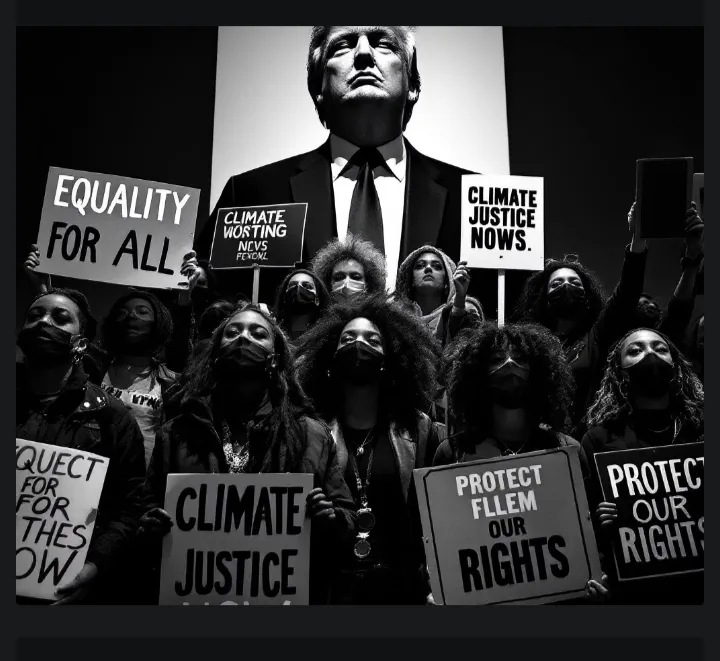
Donald Trump’s victory in the 2024 U.S. presidential election has far-reaching implications for a variety of global and domestic stakeholders. This analysis seeks to identify the key winners and losers resulting from his election, focusing on their potential impacts on international relations, energy policies, and democratic governance.
Winners
Big Oil
In his victory speech, Donald Trump emphasised the importance of the United States’ oil and gas reserves, signalling a continued commitment to supporting the fossil fuel industry. This stance is likely to benefit major oil corporations, which can expect favourable policies such as deregulation and increased opportunities for drilling. The emphasis on fossil fuels suggests that big oil will continue to play a dominant role in shaping both the U.S. economy and global energy markets.
Vladimir Putin and Viktor Orbán
Russian President Vladimir Putin and Hungarian Prime Minister Viktor Orbán were among the first world leaders to congratulate Trump on his victory, highlighting their potential gains from his presidency. Trump’s previous admiration for authoritarian leaders and his scepticism towards NATO could lead to warmer relations with Russia, allowing Putin greater leeway in pursuing his geopolitical ambitions. Similarly, Orbán, known for his right-wing populist policies, may find an ally in Trump, potentially strengthening nationalist movements across Europe.
Benjamin Netanyahu
Israeli Prime Minister Benjamin Netanyahu also quickly congratulated Trump, anticipating continued strong support from the U.S. Historically, Trump’s administration has aligned closely with Netanyahu’s policies, including recognising Jerusalem as Israel’s capital and supporting settlement expansion. This relationship is likely to persist, further solidifying Israel’s strategic position in the Middle East.
Losers
Volodymyr Zelensky
Ukrainian President Volodymyr Zelensky appears to be at a disadvantage following Trump’s victory. In what seemed like a sales pitch to Trump during the campaign period, Zelensky sought to secure continued U.S. support in Ukraine’s conflict with Russia. However, given Trump’s ambivalence towards foreign aid and his focus on domestic priorities, Ukraine may face challenges in maintaining its strategic partnership with the United States.
Palestinians
The Palestinian cause is likely to suffer under Trump’s leadership as well. His administration has previously taken steps that favour Israeli interests at the expense of Palestinian rights, including cutting funding to UNRWA (the United Nations Relief and Works Agency) and recognising Israeli sovereignty over contested territories. Such policies are expected to continue, further marginalising Palestinian voices and hindering prospects for peace.
Renewable Energy and Climate Change
The renewable energy sector may face significant challenges during Trump’s presidency. His administration’s prioritisation of fossil fuels over clean energy initiatives poses risks to efforts aimed at combating climate change. With potential rollbacks on environmental regulations and reduced funding for renewable projects, progress towards sustainable energy solutions is likely to stagnate or regress.
Liberal Democracy
Finally, the implications for liberal democracy cannot be overlooked. Trump’s approach to governance has often raised concerns about democratic norms and institutions. His tendency to undermine independent media, challenge electoral integrity, and foster division within society poses threats not only within the United States but also globally. This erosion of democratic values could have lasting repercussions for liberal democracies around the world.
Conclusion
In summary, Donald Trump’s victory in the 2024 election heralds a complex interplay of winners and losers on both domestic and international fronts. While big oil companies, authoritarian leaders like Putin and Orbán, right-wing politicians in Europe, and Netanyahu may find opportunities for advancement, figures such as Zelensky, Palestinians, advocates for renewable energy, and proponents of liberal democracy face significant challenges ahead. Understanding these dynamics is crucial as we navigate an increasingly polarised global landscape shaped by this pivotal electoral outcome.
POLITICAL SCIENCE CONSULTING
DVC Consultants advise organisations on the impact of political developments, policy changes, and geopolitical dynamics on their operations and strategies. By understanding the political landscape, DVC Consultants helps clients mitigate risks and capitalize on opportunities that arise from political shifts. This includes scenario planning for election outcomes, legislative changes, and international relations which could impact business environments.
For more information contact q.anderson@dvcconsultants.com




0 Comments